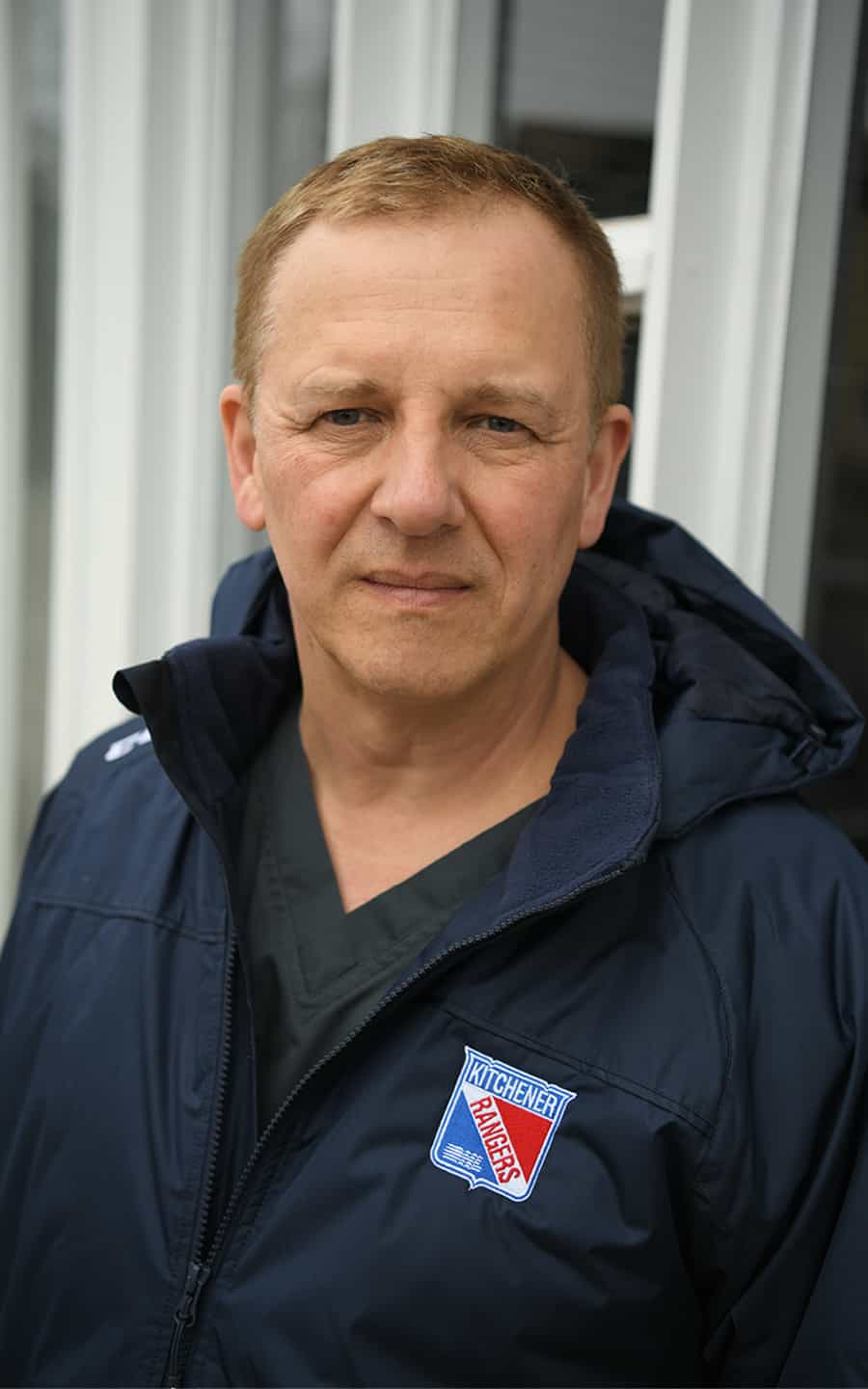
None of his patients has been diagnosed with the novel coronavirus, but Elmira doctor Frank Onuska has certainly had numerous discussions about the virus and how to avoid it.
“Even a couple of weeks ago, it wasn’t a big topic. Now, pretty much every visit gets around to it,” he said this week.
With so many closures and cancellations, people can’t help but be aware of the growing concerns. They need to heed the advice of health officials, he stressed.
“We really want to emphasize that it’s a serious situation,” said Onuska, noting the measures put in place are for the public good.
“We need people to really take this seriously. If you have it, you’re going to infect 2.5 to 3 people if you don’t avoid coming into contact with other people.”
With that in mind, this week he’s been dealing with about 80 per cent of his patient interactions by telephone rather than in person.
“We’re trying to promote social distancing. Our goal is to have no on in the waiting room,” he explained of measures to keep people from having to come in contact with others.
For those of us going about our daily lives, social distancing should be the norm. And the number-one thing you can do is wash your hands frequently, doing a thorough job like a surgical scrub: removing all jewellery and washing from below the elbows with soap and water for at least 20 seconds.
“So try to wash your hands. Don’t touch your face. Don’t touch your eyes. Don’t go to emerg – please, please don’t go to emerg. If you think you have to, call your doctor’s office – they’ll get in touch, and do their algorithm to decide whether you need to go. For the majority of people, the treatment is they all stay at home,” said Onuska, who practices at the Elmira Medical Centre.
In short, we all have to use common sense, realizing that we’re all in this together. That’s applicable to everything from taking precautions to refraining from hoarding items such as food and cleaning supplies.
“If we’re going to do this right, it has to be ‘we’ and not about ‘me.’”
Think of others, which applies not only to social distancing and self-isolation, but about lending a hand to friends and neighbours – for instance, offering to get groceries for an elderly person who should minimize their social contacts. That also applies to being considerate of others, buying what you need rather than clearing off the shelves, he stressed.
“Leave some for somebody else. We have to share. The person you’re blocking from buying things might be your neighbour,” said Onuska
“Don’t buy all the things on the shelf.”
In that vein, it’s also not a good idea to make off with the masks and hand sanitizer at doctors’ offices – it’s happened in our own clinic.”
By working together and following the measures set out by officials, the pandemic should pass that much quicker.
“Science tells us if we flatten the curve, the problem will go away sooner. We have to flatten the curve,” he said, referring to slowing the spread of the virus.
About 82 per cent of people who are infected will have mild symptoms similar to a cold or the seasonal flu. Another 14 per cent will have some impact beyond that. Three to four per cent may not survive it, particularly if they’re among the high-risk group of seniors and those with underlying medical issues such as high blood pressure and heart disease.
It’s for the sake of those most at risk that we have to take precautions to heart, said Onuska.
“We have to make it work.”
Taking care doesn’t mean becoming overly isolated. Getting out, particularly with spring arriving, is still a good idea. The same goes for letting kids play outside. In all cases, avoid big groups and maintain distancing as applicable, he said.
For those with symptoms, whether it’s a cold or seasonal flu, then staying at home is the answer. With most cases of COVID-19, the same advice applies. Even more so in cases of higher risk, such as those who’ve just returned from overseas.
“If you have travelled outside of Canada, you need to not go to work for two weeks. You need to work from home.”
Both COVID-19 and SARS are coronaviruses, the outbreak in 2003 was different in both scale and in its contagion period; where SARS was most likely to be passed on later in the infection period, meaning people already knew they were sick, COVID-19 is more easily passed on early, when people might not even know they’ve got it.
“SARS was a warning, but it wasn’t a pandemic,” Onuska explained, adding what was learned then has been applied in this case, a lesson that will have to be repeated.
“We have to learn this time so that the next time we’re more prepared.”








